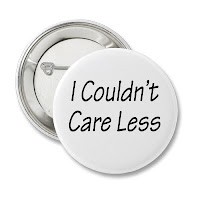Self / censorship and blogging discussion at 2013 Feminisms and Rhetorics conference @ Stanford U
Jaque and I are waiting in the San Francisco Airport to catch our flight back to Winnipeg. We’re feeling inspired by the co-presenters and feminists we met in the audience of our session “Birthing Rhetoric, Mommy Blogs and What Mommies Want” with Lori Beth De Hertogh (Washington State U) and Dawn Opel (Arizona State U).
Our discussion about the surveillance and censorship experienced when posting on line (whether on Face Book or on Blogs) drew discussion and analysis about the differences between self-censorship (which we all practice on a daily basis of what we tell to whom and under what conditions) and being censored by employers, government, business, and corporations (censorship by Face Book was the focus of discussion around the Birthing Without Fear online Community).
We questioned the role of responsibility that authors have/should have in being aware of what they are posting. We reflected upon the permanence of posts once uploaded to the internet and the long-term repercussions of those images and statements that we may not have any inkling of at the time we post; implications for those who post and for those who we talk about or share images of.
As Maxine Hong Kingston says in a short story that records how she imagines her aunt’s suicide in China Women, when we tell about others we may do so as a gesture of respect, yet there are nonetheless elements of exploitation and exposure, so that she admits with some guilt that she is “telling on her.” There is no set of guidelines to govern what can be said of others, so it is important that the writer acknowledges that as the person wielding the pen she has assumed a powerful role. To support the otherwise lonely work of reflective practice, we are proposing a dialectical approach that puts mommy bloggers in contact with each other discussing choices and boundaries.
One of the questions we are left with, and hope you can assist in fleshing out by joining in the discussion, is what are the considerations we may want to think about before posting stories about others or personal tellings that include the lives of others. We’d love to hear from you.
Our discussion about the surveillance and censorship experienced when posting on line (whether on Face Book or on Blogs) drew discussion and analysis about the differences between self-censorship (which we all practice on a daily basis of what we tell to whom and under what conditions) and being censored by employers, government, business, and corporations (censorship by Face Book was the focus of discussion around the Birthing Without Fear online Community).
We questioned the role of responsibility that authors have/should have in being aware of what they are posting. We reflected upon the permanence of posts once uploaded to the internet and the long-term repercussions of those images and statements that we may not have any inkling of at the time we post; implications for those who post and for those who we talk about or share images of.
As Maxine Hong Kingston says in a short story that records how she imagines her aunt’s suicide in China Women, when we tell about others we may do so as a gesture of respect, yet there are nonetheless elements of exploitation and exposure, so that she admits with some guilt that she is “telling on her.” There is no set of guidelines to govern what can be said of others, so it is important that the writer acknowledges that as the person wielding the pen she has assumed a powerful role. To support the otherwise lonely work of reflective practice, we are proposing a dialectical approach that puts mommy bloggers in contact with each other discussing choices and boundaries.
One of the questions we are left with, and hope you can assist in fleshing out by joining in the discussion, is what are the considerations we may want to think about before posting stories about others or personal tellings that include the lives of others. We’d love to hear from you.



Comments
Post a Comment